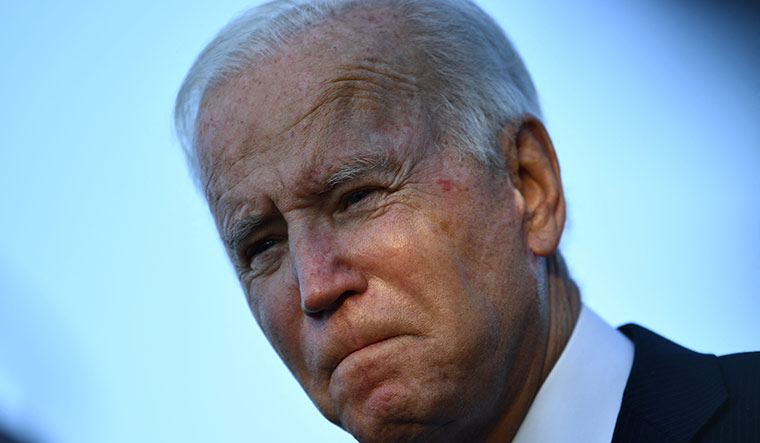Last week in Glasgow, House Speaker Nancy Pelosi told reporters that the “Build Back Better” bill would get passed in the House in the week of November 15. With that week here, and COP26 concluded with no firm commitments on climate financing or on phasing out fossil fuels, all eyes are now on a bill that promises $555 billion worth of spending on a “clean energy economy”, in a country that is currently the world's second-largest polluter.
Some of the key items under the bill are free preschool for all 3-4 year olds; two years of free community college for all Americans; tax cuts of up to $3,600 per child for 39 million households; $320 billion for expanding tax credits for renewable power with further tax credits for the purchase of electric vehicles, $110 billion for boosting manufacturing of clean energy technologies like solar panels and electric vehicles; using Medicare and its collective bargaining ability to lower the costs of prescription medication in the US, 12 weeks of paid family leave, and sweeping investments in affordable housing.
The bill is expected to be universally opposed by Republicans. Not a worry for the Democrats, who control the House and can force bills through the Senate through the use of Vice President Kamala Harris’ tie-breaker vote. But, this hinges on 100 per cent of the Democratic Party supporting the bill--which is not the case.
West Virginia Senator Joe Manchin has repeatedly opposed parts of the bill, particularly its size and its planned impact on the fossil fuel industry. As the senator with the most funding from the coal, oil and gas industries; with most of his assets in a coal brokerage firm that he founded, and with a fiscally conservative outlook that clashes with the bill’s $1.85 trillion price tag, he may end up nipping it in the bud. Manchin, joined by Kyrsten Sinema, (D-Ariz) have insisted on reducing the size of the bill’s spending.
Attempts to dilute the bill may also end up costing crucial Democratic support. The bipartisan effort that passed the $1 trillion infrastructure bill earlier this month only came after the president and House Speaker Nancy Pelosi pledged action on Biden's broader package expanding health, child, elder care and climate change by mid-November.
House progressives had threatened to hold up the infrastructure bill without a firm commitment of immediate action on the broader package.
Due to the nature of the bill, which requires that any spending it incurs will be earned back or accounted for, House centrists say they will vote for the package as early as this week if an upcoming Congressional Budget Office analysis affirms White House estimates that the bill is fully paid for. The measure would be covered with changes to corporate taxes, such as a new corporate minimum tax while raising taxes on higher-income people.
President Joe Biden's top economic adviser expressed confidence Sunday that the White House's $1.85 trillion domestic policy package will quickly pass the House this week and said approval couldn't come at a more urgent time as prices of consumer goods spike.
“Inflation is high right now. And it is affecting consumers in their pocketbook and also in their outlook for the economy,” said Brian Deese, director of the National Economic Council.
“This, more than anything, will go at the costs that Americans face,” he said, before adding that the House will consider the legislation this coming week. “It will get a vote, it will pass.”
The House has been moving toward approval of the massive Democrat-only-backed bill even as the measure faces bigger challenges in the Senate, where Sens. Joe Manchin, D-W.Va., and Kyrsten Sinema, D-Ariz., have insisted on reducing its size.
In a letter Sunday to Democratic colleagues, Majority Leader Chuck Schumer, D-N.Y., counselled time and patience for working through a bill of this size.
Consumer prices have soared 6.2 per cent over the last year, the biggest 12-month jump since 1990. Deese acknowledged that prices may not fully return to a more normal 2 per cent level until next year due to the lingering effects of COVID-19, but he said the measure will go a long way toward lowering costs for American families. We're confident this bill, as it moves through the process, is going to be fully paid for, and not only that, it's actually going to reduce deficits over the long term, he said.
On Friday, Pelosi wrote Democratic members reaffirming her plan to push ahead soon, noting that CBO estimates released so far on pieces of the plan have been consistent with White House projections.
We are on a path to be further fortified with numbers from the Congressional Budget Office, she said.
Rep. Fred Upton, R-Mich., one of 13 House Republicans who voted for the infrastructure bill, said he's not convinced that the broader package will get House approval this week.
“I don't think the votes are there yet, he said. A good number of Democrats had demanded and are going to receive a CBO report as to whether is, it really paid for? What does it do when you expand Medicare? What does that do to the solvency? Somehow, I don't think we're going to get these answers...for Pelosi to get the votes set before the end of the week."
With inputs from PTI




